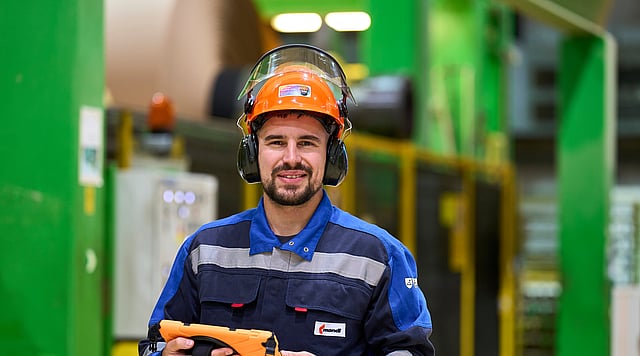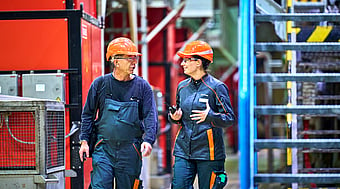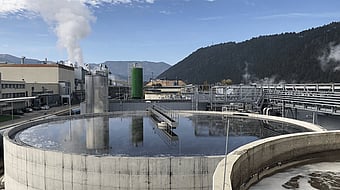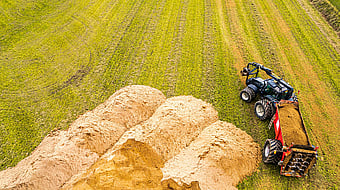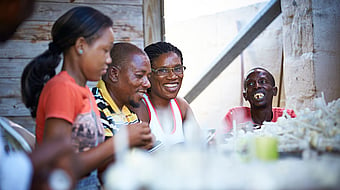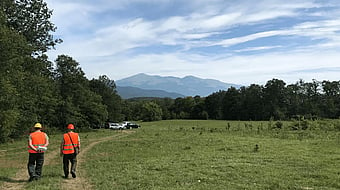Responsible Business Practices
Our responsible business practices focus on environmental performance, human rights, communities and responsible procurement.
Responsible business practices underpin our MAP2030 performance
Our sustainability framework, Mondi Action Plan 2030 (MAP2030), is based on responsible business practices spanning environmental performance, human rights, communities, and responsible procurement.
Our responsible business practices at a glance
Resource efficiency is fundamental to many of our material issues. We work with partners across our value chain to use resources wisely, prevent environmental degradation and support a circular economy.
We are committed to reducing water use and increase water recycling, as well as to finding alternative solutions for waste by recycling or reuse.
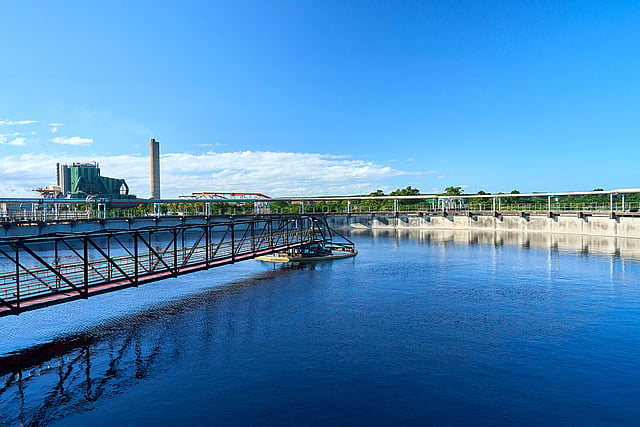
Upholding and respecting human rights in our operations and across our supply chain is key.
We are working to enhance our internal processes and tools to identify and manage potential risks as we introduce our Human Rights Due Diligence approach across the business.
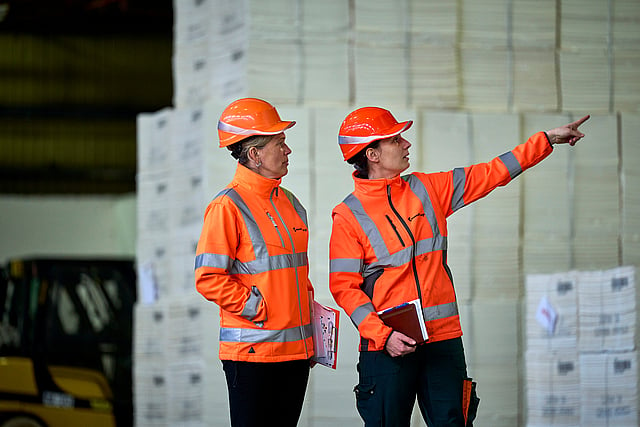
Our business thrives when it is connected to healthy and prosperous communities. We support sustainable development and engage with communities around our operations to build trust and collaboration.
We use a variety of stakeholder engagement tools to better understand the needs of local communities around our operations and our impact on them.
We focus our social investments on areas where we can make the greatest difference, guided by the principles of sustainable development, national and local development priorities and our business objectives.
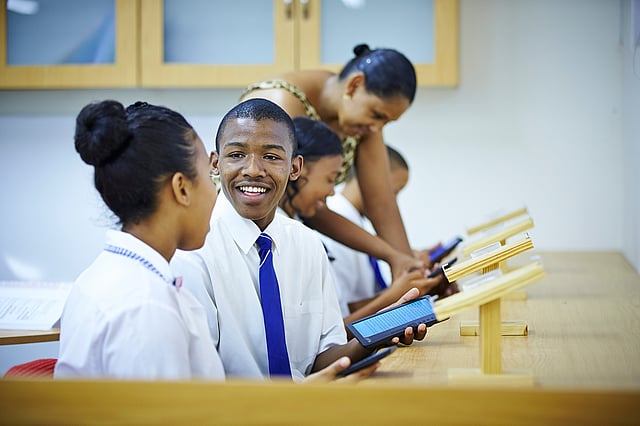
Stakeholders are seeking more and more information on how businesses manage their supply chain risks. We work to intensify our engagement with suppliers and use our responsible procurement process for evaluating and monitoring their sustainability risks and performances.
We work to maintain high standards to ensure a responsible procurement of wood and pulp through our Due Diligence Management System (DDMS).
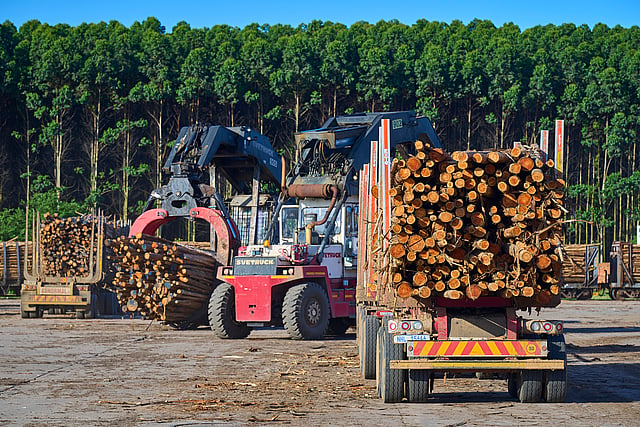
reduction in specific NOx emissions compared with our 2020 baseline
social investments in our communities
supplier sites assessed since the launch of the Responsible Procurement process
2023 responsible business practices highlights
Our responsible business practices commitments, their targets and performance
Environmental performance: We will continually work on improving the environmental performance of our operations to minimise environmental impacts
Targets
Reduce specific contact water consumption by 10% by 2030 from a 2020 baseline
Reduce specific effluent load (measure COD) by 15% by 2030 from a 2020 baseline
Reduce specific NOx emissions from our pulp and paper mills by 10% by 2030 from a 2020 baseline
Reduce specific waste to landfill by 30% by 2030 from a 2020 baseline
100% of our operations will be certified according to globally accepted environmental standards equivalent to ISO 14001 by 2025
2023 performance
The specific contact water consumption of our pulp and paper mills decreased by 4% compared with our 2020 baseline. We reported a slight decrease of 1% compared with last year.
Specific COD emissions increased by 2% compared with our 2020 baseline, and increased by 10% since last year, due to operational challenges at the wastewater treatment plants of two mills. We are working to resolve these challenges and once again reduce our COD emissions in line with our target.
Our specific NOx emissions were 10% lower compared with our 2020 baseline, due to investments in energy efficiency and modernisation of our energy plants at our mills. In Świecie, for example, we replaced some natural gas by light fuel oil and decreased the NOx emissions by more than 15% since 2020.
In 2023, we reported a 44% decrease in specific waste to landfill compared with our 2020 baseline, due to two initiatives in Richards Bay (South Africa) and Ružomberok (Slovakia).
100% of our pulp and paper mills and 76% of our converting operations were ISO 14001 certified in 2023.
Human rights: Strengthen governance systems to prevent human rights violations and remedy any adverse impacts.
Targets
Develop the due diligence and risk assessment methodology and guidance with the support of the Danish Institute for Human Rights (DIHR) by end of 2021
100% of operations with a completed human rights due diligence & risk assessment, and action plan in place to address findings by 2025
100% of operations to have addressed their human rights impacts (investigate, prevent future occurrences and remedy adverse impacts) by 2030
2023 performance
We have achieved our first human rights target for MAP2030 in 2021 with the development of our Human Rights Due Diligence (HRDD) methodology.
In 2023, all our operations responded to a Human Rights Risk Identification questionnaire to detect potential adverse human rights impacts and develop a holistic understanding of the risk mitigation practices in place.
We have prioritised the outcomes according to our HRDD methodology and validated our understanding of the risks identified with an external expert. The validation showed that there were no human rights adverse impacts reported in Mondi operations.
Another priority in 2023 was to improve the understanding of modern slavery among colleagues and review our risk prevention practices. We conducted internal workshops and training sessions.
Communities: Maintain social investments in our communities to support sustainable development aligned with local needs.
Targets
Report on our total social investment annually
2023 performance
Mondi Group and Mondi operations around the world have spent over €7.3 million on social investments including a €500,000 donations to the World Food Programme to their humanitarian aid work in affected areas by the earthquakes in Türkiye and Syria.
We conducted a Stakeholder Engagement Conversations process in Ružomberok (Slovakia). Through a series of face-to-face dialogues with local key stakeholders, we aim to better understand the perception and impacts of Mondi operations – both within the company and in the regions they operate. Read more here.
Responsible procurement: We mitigate risks and create greater transparency in our supply chains through our responsible procurement process
Targets
We will minimise the supplier risk ratio year-on-year
2023 performance
In 2023, we began collaborating with EcoVadis to identify and mitigate risks in our supply chain.
We followed up on previous risk assessments and succeeded in receiving a complete questionnaire from the unresponsive supplier from 2022’s process.
We also conducted an on-site audit with a potential high-risk suppliers from the 2022 assessments.
Our Responsible Procurement campaign included a selected pilot group of 460 suppliers in 2023. Based on the results, we invited 36 suppliers with a high sustainability risk to participate in an individual assessment.
We classified 5 out of total 460 screened (1.1%) suppliers sites that were unresponsive, or declied the assessment, as remaining high risk and will follow up according to our process for escalation and resolution.
We also will continue our dialogue with 8 suppliers with ongoing assessments or corrective action plans in place.
Responsible procurement: Ensure that all our wood fibre (round wood, wood chips and market pulp) is sourced solely from credible wood sources
Targets
Maintain 100% of wood fibre compliant with credible standards (FSC™, PEFC, or Controlled Wood)
For high-risk countries maintain 100% FSC™-certified fibre sourcing or implement additional risk mitigation measures
100% FSC™- or PEFC-certified market pulp
100% FSC™ or PEFC Chain-of-Custody certification for our pulp and paper mills
We will continue to work with certification bodies to ensure credibility of the certification and Controlled Wood systems
2023 performance
We maintained 100% compliant wood fibre with credible standards comprising 75% of FSCTM and PEFC and the remainder controlled wood.
We procured a small volume of FSC Controlled Wood from Brazil, which has been verified prior to procurement as legally compliant and deforestation free by an independent verification body.
In 2023, we have successfully passed an audit by EU Timber Regulation competent authorities.
We also arranged interactive sessions with PEFC and FSC experts on wood certification matters and participated in the PEFC/SFI Joint Conference.
